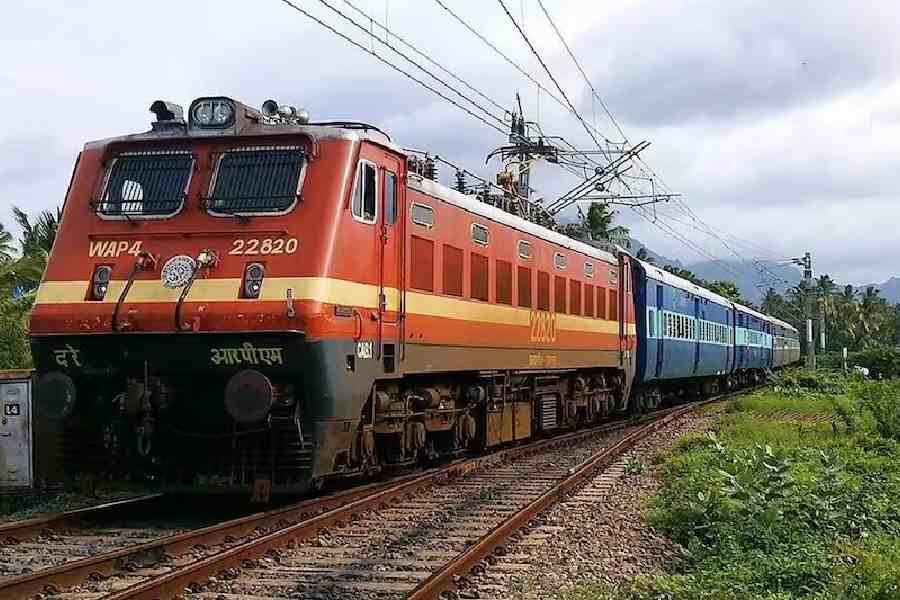Indian Railways is likely to get a capex boost in the interim budget on February 1.
Analysts expect finance minister Nirmala Sitharaman to increase the capital allocation to support a major makeover for the national transporter, with more modern and faster trains and improved safety features.
The gross budgetary support to rail swelled to Rs 2.4 lakh crore in 2023-24, while the total capital allocation was Rs 2.6 lakh crore.
A year ago, the budgetary support was around Rs 1.6 lakh crore, while the capital allocation was around Rs 2.45 lakh crore.
The expectation is that over 90 per cent of the capital allocation would flow through the government’s gross budgetary support in 2024-25 as well.
Analysts said defence, railways, roads and highways would continue to account for about three-fourths of the total capex in 2024-25.
They estimated it would go up to Rs 2.8-Rs 3 lakh crore in the 2024-25 fiscal.
“We expect adequate allocations towards the infrastructure sectors such as roads, highways and railways in 2024-25. The defence outlay — on R&D and acquisitions — may be enhanced further, amid the government’s focus on encouraging the development and production of emerging technologies,” Icra said.
The rating agency said they expected interest-free capex loans to states would continue in 2024-2025. The sum was Rs 1.3 lakh crore in the last budget.
Icra said it has placed the target for gross capital expenditure at Rs 10.2 lakh crore in 2024-25.
“Given our expectations of a Rs 75,000-crore shortfall in capex for 2023-24, it would imply a sedate tear-on-year growth of 10 per cent compared with the expansion of over 20 per cent seen in each of the post Covid years.
The total expenditure is estimated to grow 5 per cent to Rs 47.4 lakh crore in 2024-25. Consequently, the quality of spending would improve further, with the share of capex in total expenditure projected to rise to 21.5 per cent in 2024-25 from the expected 20.5 per cent in 2023-24.
The introduction of new Vande Bharat trains focuses on improving safety.
The replacement of assets such as tracks, bridges and locomotives and the government’s ambitious projects such as the bullet train would continue to attract capital investment.
The government had allocated Rs 35,000 crore for new lines in 2023-24, Rs 45,000 crore under the Railway Safety Fund and Rs 10,000 crore for contribution towards Rashtriya Rail Sanraksha Kosh.
With the capital boost, several new Vande Bharat trains were launched in the country as part of the government’s plan to run 400 such trains.
Fertiliser subsidy
The government’s fertiliser subsidy bill is likely to decline 30-34 per cent to Rs 1.7-1.8 lakh crore this fiscal because of the fall in global prices and lower imports of urea, Union minister Mansukh Mandaviya said on Wednesday.
The subsidy bill stood at Rs 2.56 lakh crore in the previous financial year.
Mandaviya said the subsidy bill is estimated at around Rs 1.7-1.8 lakh crore.
“Subsidy is expected to be lower this year because of fall in global prices. We have not increased retail prices to reduce subsidy,” he said.
When the global rates skyrocketed during the last fiscal, the government increased subsidy and kept unchanged the retail prices of urea, di-ammonium phosphate (DAP) and other fertilisers to protect farmers interest, the minister said.










